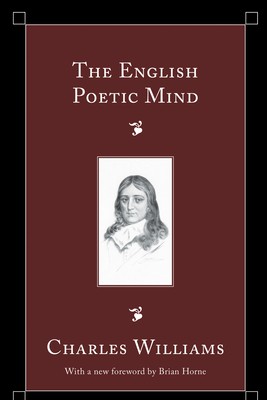
- We will send in 10–14 business days.
- Author: Charles Williams
- Publisher: Wipf & Stock Publishers
- Year: 2008
- Pages: 213
- ISBN-10: 1556355556
- ISBN-13: 9781556355554
- Format: 16.6 x 21.6 x 1.3 cm, minkšti viršeliai
- Language: English
- SAVE -10% with code: EXTRA
Reviews
Description
After an opening chapter that examines the nature of poetry itself and analyzes its effect upon the reader, the author, in The English Poetic Mind, moves on to his main purpose, which is to try to reveal the source of the drive to creation in three of the greatest English poets: William Shakespeare, John Milton, and William Wordsworth. In each he identifies a particular kind of crisis that is the origin of the poetic impulse. In the light of these discoveries he addresses the achievements of several lesser poets and concludes with a chapter that, in a more general way, tentatively offers a vision of the paths poetry might take in the future. Introducing a duet of Charles Williams's best literary criticism on poetry: Reason and Beauty in the Poetic Mind The English Poetic Mind ""Williams's deeper interest was in the way the nature of the act of poetic creation could be grasped from the reading of the poems themselves and the means by which the artists reached into and spoke from the hidden places of their imaginative power. . . . [These two books] will enable us to re-appraise, or perhaps encounter for the first time, the distinctive qualities of Charles Williams's approach to the art that was at the centre of his own creative life, poetry."" Brian Horne, from his new 2007 foreword Author and scholar Charles Williams (1886-1945) joined, in 1908, the staff of the Oxford University Press, the publishing house in which he worked for the rest of his life. Throughout these years, poetry, novels, plays, biographies, history, literary criticism, and theology poured from his pen. At the beginning of the Second World War the publishing house was evacuated to Oxford where, in addition to his own writing and his editorial work for the Press, he taught in the University.
EXTRA 10 % discount with code: EXTRA
The promotion ends in 23d.07:39:36
The discount code is valid when purchasing from 10 €. Discounts do not stack.
- Author: Charles Williams
- Publisher: Wipf & Stock Publishers
- Year: 2008
- Pages: 213
- ISBN-10: 1556355556
- ISBN-13: 9781556355554
- Format: 16.6 x 21.6 x 1.3 cm, minkšti viršeliai
- Language: English English
After an opening chapter that examines the nature of poetry itself and analyzes its effect upon the reader, the author, in The English Poetic Mind, moves on to his main purpose, which is to try to reveal the source of the drive to creation in three of the greatest English poets: William Shakespeare, John Milton, and William Wordsworth. In each he identifies a particular kind of crisis that is the origin of the poetic impulse. In the light of these discoveries he addresses the achievements of several lesser poets and concludes with a chapter that, in a more general way, tentatively offers a vision of the paths poetry might take in the future. Introducing a duet of Charles Williams's best literary criticism on poetry: Reason and Beauty in the Poetic Mind The English Poetic Mind ""Williams's deeper interest was in the way the nature of the act of poetic creation could be grasped from the reading of the poems themselves and the means by which the artists reached into and spoke from the hidden places of their imaginative power. . . . [These two books] will enable us to re-appraise, or perhaps encounter for the first time, the distinctive qualities of Charles Williams's approach to the art that was at the centre of his own creative life, poetry."" Brian Horne, from his new 2007 foreword Author and scholar Charles Williams (1886-1945) joined, in 1908, the staff of the Oxford University Press, the publishing house in which he worked for the rest of his life. Throughout these years, poetry, novels, plays, biographies, history, literary criticism, and theology poured from his pen. At the beginning of the Second World War the publishing house was evacuated to Oxford where, in addition to his own writing and his editorial work for the Press, he taught in the University.


Reviews